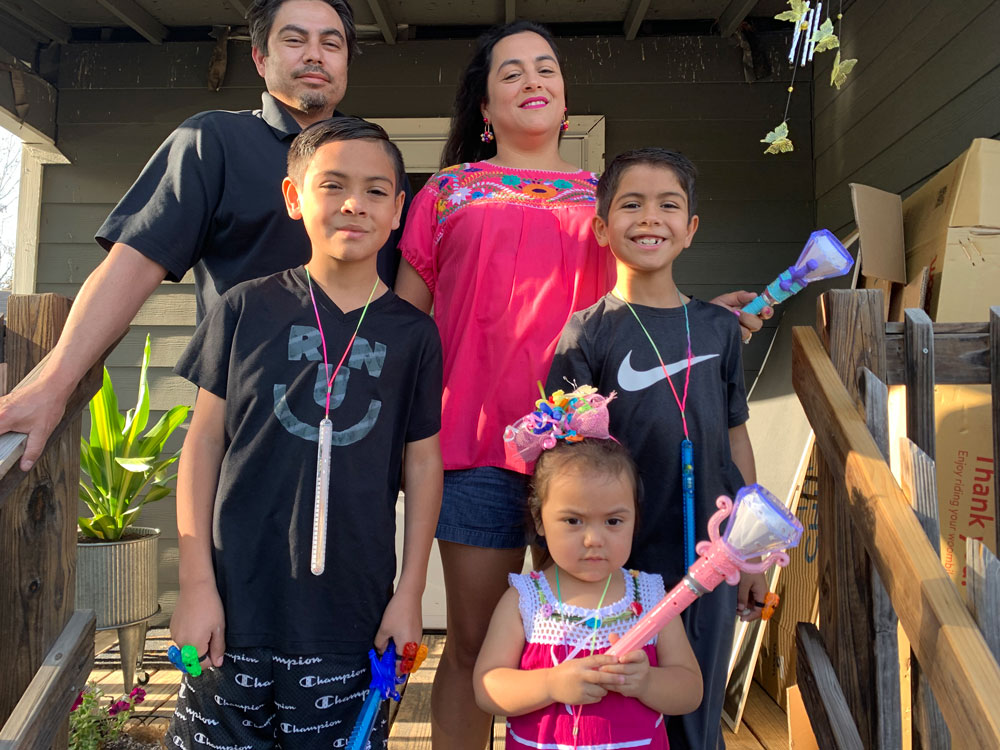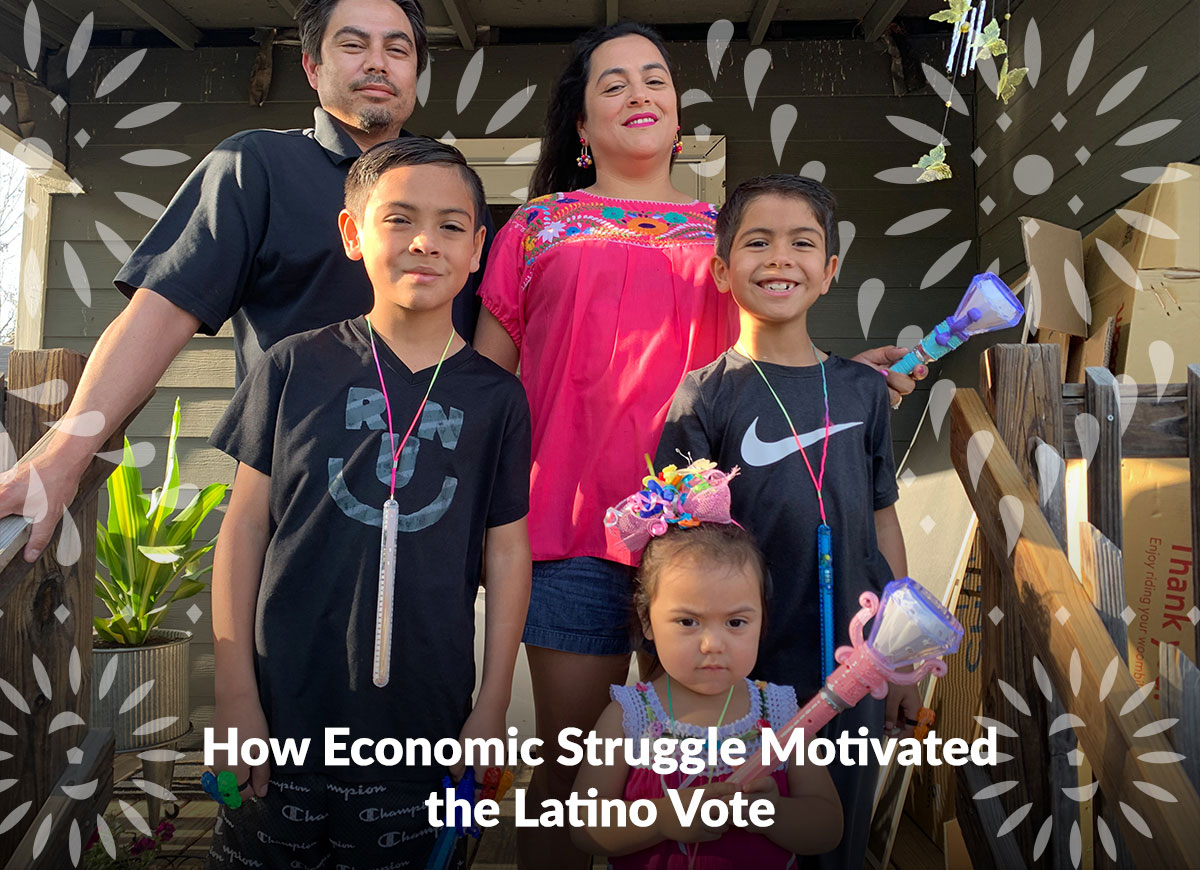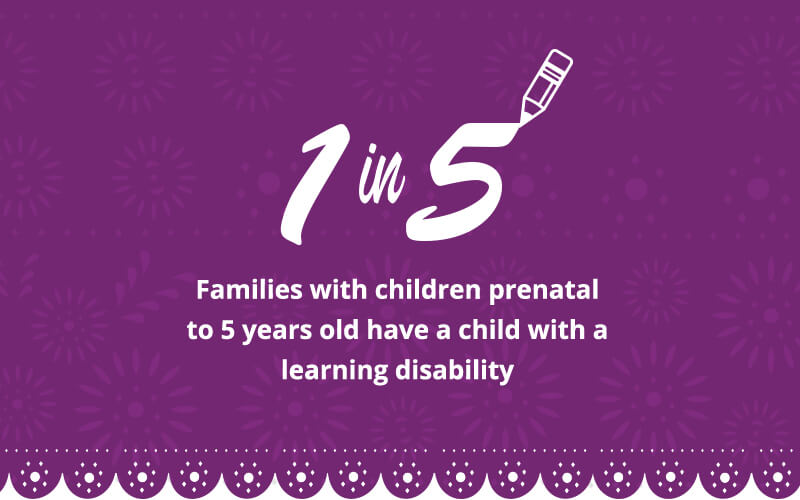Melanie Cardenas is struggling to afford groceries for her three young children in San Antonio, Texas. Her eyes filled with tears, but her jaw was set with determination. “I’m just trying to break the cycle,” she said.
The cost of goods and services in the U.S. has jumped eight percent in the past year due to inflation, but grocery prices in particular have risen 13.5 percent.
According to the 2022 National Latino Family Survey, the majority of respondents across the nation are worried they can’t keep up with basic expenses like rent/mortgage or utilities, and food for their children. The survey polled 1,300 Latino parents and caregivers with children under six years old, including expectant families.
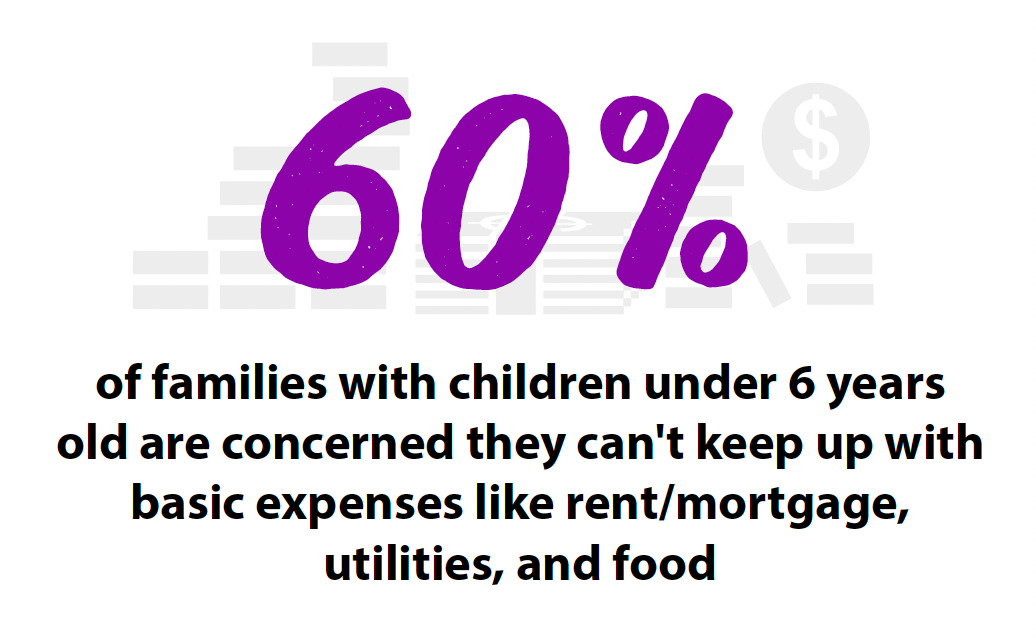
Feeding the Family
Melanie, age 42, gave birth to a third child during COVID (Jordan, two years old), and married her now husband last December. The blended household has brought complications she didn’t anticipate.
In her first years as a mother, Melanie worked and went to school, supporting her two sons (David, now 10 years old, and Dylan, eight) on her own. She worked as a caseworker, prison counselor, and special education teacher, and got her Masters in School Counseling.
“As a single mother, I qualified for a lot of services, but now with a combined income we’ve lost access to many of those programs,” Melanie said.
She’s among many Latino parents who have been shut out of federal help as COVID assistance has dried up. The National Latino FamilySurvey found one in five Latino families have been terminated from SNAP benefits that helped them with food costs.
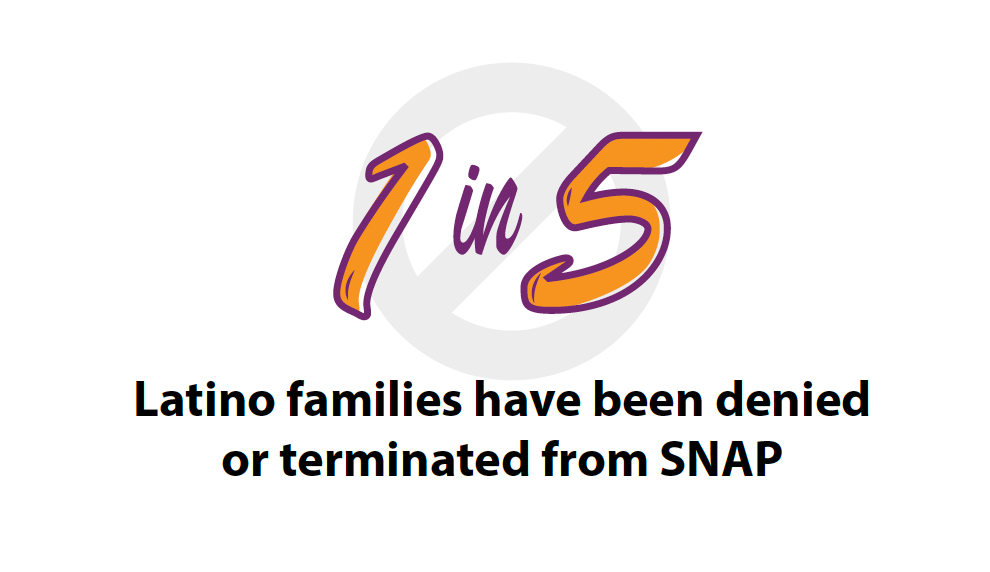
All Melanie’s family earnings are sapped by bills, groceries, child care—and recently, a title loan to help cover an emergency car breakdown.
“A dozen eggs was almost five dollars yesterday and WIC only covers one dozen a month,” she said. “We could only budget $50 for groceries last week, and that didn’t buy us much.”
SNAP (Supplemental Nutrition Assistance Program) and WIC (the Special Supplemental Nutrition Program for Women, Infants and Children) are federally funded health and nutrition programs. SNAP, also known as food stamps, provides a monthly dollar amount based on income and number of dependents, WIC covers the cost of a certain number of specific grocery items a month, chosen based on nutritional value and USDA standards.
“With SNAP I had $800 a month as a single mom, now we can’t afford anywhere near that budget. WIC helps, but it’s not enough,” Melanie said. “Just struggling to feed the family is so, so frustrating.”
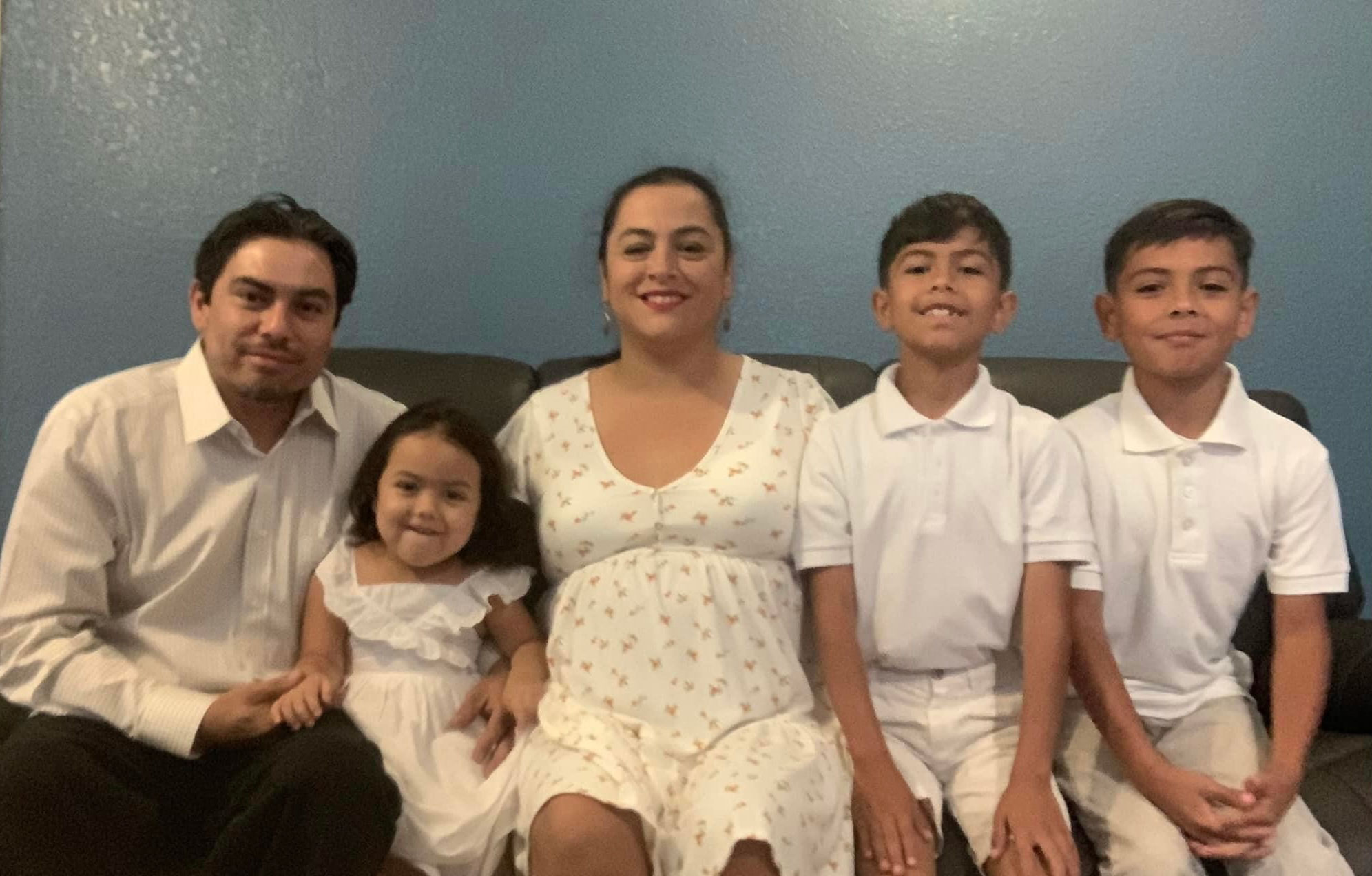
Solutions
But Melanie is resolved to find solutions. She has a full-time position as a school counselor on the horizon. Finding affordable child care to accommodate her schedule will be difficult, she said, “But this would be my dream job, and I’m determined to make it happen.”
The 2022 National Latino Family Report heard a resounding call for more economic support for working parents during tough times—and families also want to carve their own career paths to economic security. Twenty percent of respondents requested more career counseling and coaching, and 25 percent supported more job skill development tools.
The survey found 10 percent of parents have dropped out or quit their education due to economic hardship from inflation. Experts worry this could have generational effects if families don’t get the support needed to skill up for better paying jobs. For Melanie, a higher paying job is within reach—but the determining factor will be child care support.
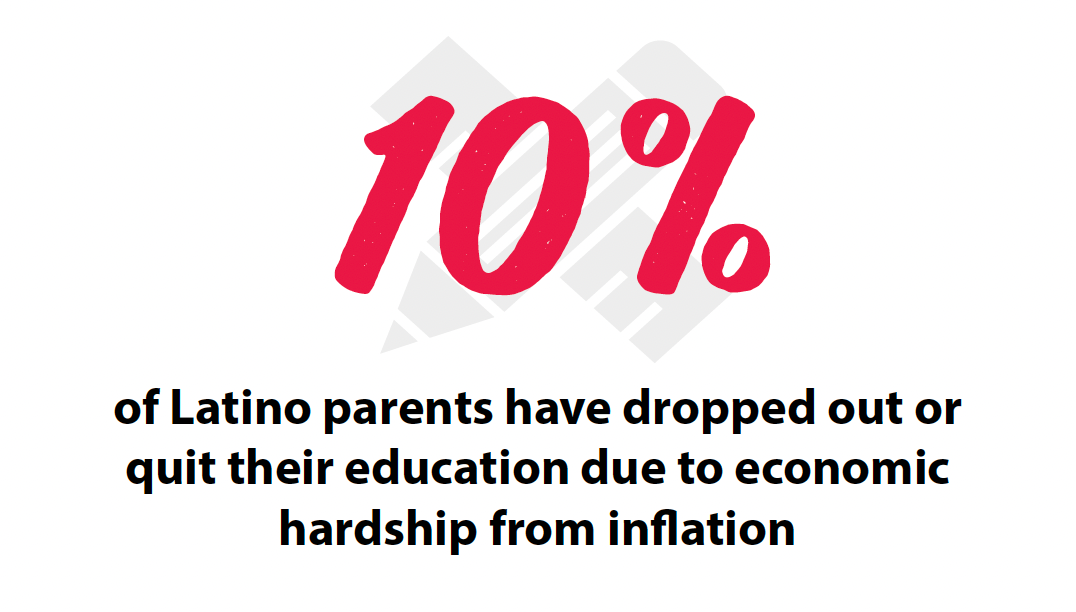
Thankfully, early childhood issues have recently been front and center in policy decisions and the November midterm election- proving to be a watershed moment for child care and education funding.
Notably, universal early childhood education was approved by voters in New Mexico. According to the National Families Survey, 90 percent of Latinos supported the constitutional amendment to fully fund child care and early education from New Mexico’s $24 billion permanent fund. In California, universal transitional Kindergarten was passed, and more decisions will be made in upcoming legislative sessions. According to Child Care Aware of America, there are 81 active child care bills in state legislatures across the country.
“The numbers of Latinos are growing and more people are being educated and raising children who will become future voters,” Melanie said. “People want change. Seeing politicians elected that want to actually help us gives me hope.”
According to the 2022 UnidosUS analysis, Latinos are one of the fastest-growing populations in the country, increasing by 23 percent since 2010. Vox describes Latinos as one of the most powerful voting blocs in the nation. And their influence proved true, deciding the fate of many swing states this election.
“As parents we’ve shown our children the importance of participation in the democratic process,” Melanie said. She is determined to make change a reality—especially for her children.
“I’m raising good, resilient kids. None of them ever complain when we don’t have something,” she said. “I have so much to be grateful for, and I will break the cycle.”
Thank you to our partners at AVANCE, Inc. who supported the parent focus groups in San Antonio and individual parent interviews for this blog.
Survey Methodology: On behalf of Abriendo Puertas/Opening Doors and UnidosUS, BSP Research collected opinions from 1,300 Latino parents and primary caregivers of children 5 years of age or younger including expecting families using a blended data collection approach that included online surveys, and live telephone interviews conducted via landlines and cell phones. The survey was available in English or Spanish and carries an overall +/- 2.7% margin of error, with larger margins for sub-samples. Upon completion, the data were weighted to match the U.S. Census ACS for parents and grandparents of Latino origin. The survey was conducted from September 6-October 4, 2022 and includes oversamples for both New Mexico and Los Angeles County.

